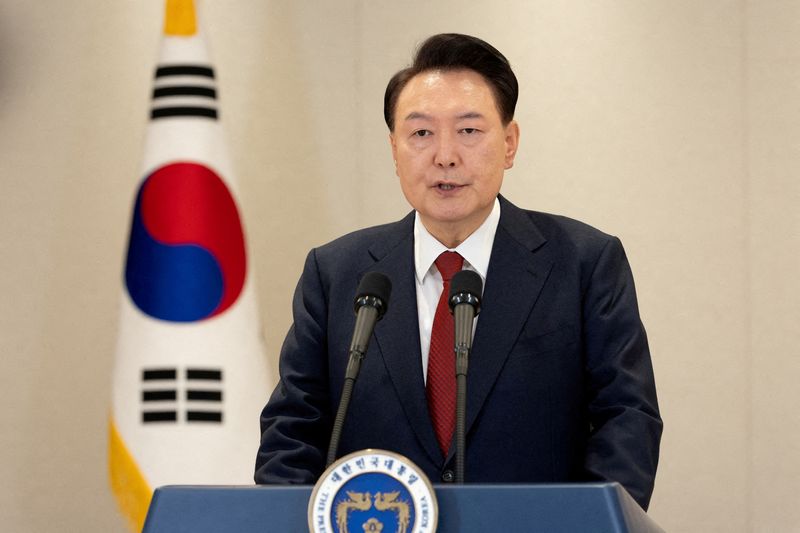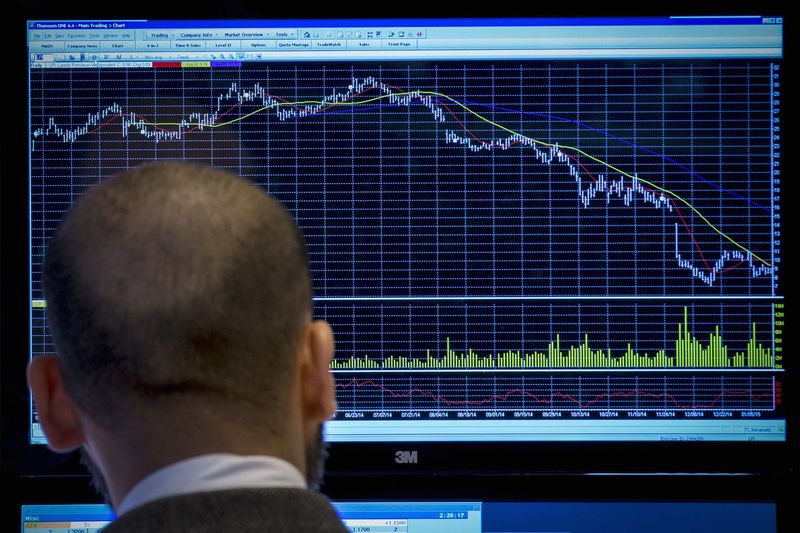By Hyunsu Yim
SEOUL (Reuters) – South Korean investigators have applied for an arrest warrant against suspended President Yoon Suk Yeol over the short-lived imposition of martial law this month, an official said on Monday, the first time a sitting president has faced such action got.
Yoon did not respond to calls for questioning by police and the Corruption Investigation Office for High-ranking Officials, who are jointly investigating whether his declaration of martial law on December 3 amounted to an insurrection.
Police tried but failed to successfully raid the presidential office as part of the investigation.
A court in Seoul will decide whether to issue an arrest warrant following the request.
Insurrection is one of the few charges for which a South Korean president does not enjoy immunity.
Yoon Kab-keun, a lawyer for the suspended president, said the arrest request was “unfair” and that the anti-corruption bureau has no authority to do so.
“The martial law emergency is within the authority of the president,” the lawyer told reporters outside Seoul’s Western District Court after submitting a written opinion on the arrest warrant request as well as a letter of appointment from lawyers.
Yoon was suspended from presidential power after being impeached by parliament over his decision to briefly impose martial law.
Masked martial law troops equipped with guns, bulletproof vests and night vision equipment entered parliament, where they faced staffers who opposed them with fire extinguishers.
The decree lasted only hours until parliament rejected it and Yoon withdrew.
The move shocked the country, which has been a democracy since the 1980s, and caused international alarm among allies such as the United States and trading partners with Asia’s fourth-largest economy.
A case has begun in the Constitutional Court on whether Yoon should be reinstated or permanently removed from office. It has 180 days to reach a decision.

On Friday, the court held its first preliminary hearing, rejecting a request from Yoon’s lawyers to postpone the proceedings to better prepare. The court said this would happen quickly.
The next hearing is scheduled for January 3.


